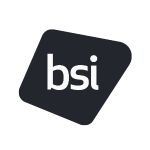 A commitment to employee’s well-being should be non-negotiable for all businesses. Here are our eight top tips to help manage the everyday psychosocial risks that staff can face.
A commitment to employee’s well-being should be non-negotiable for all businesses. Here are our eight top tips to help manage the everyday psychosocial risks that staff can face.
- Know the signs
You may notice several common indicators in employees signalling poor mental health and well-being. These can be a clear sign of the need for psychological health and safety management in your organization:
Changes in behaviour
- Social isolation or withdrawal, refusing offers of help or neglecting personal well-being needs
- Increased absence from work or coming to work when ill
- Lack of engagement
- Reduced energy
- High staff turnover
- Low-quality performance or failure to complete tasks/assignments on time (presenteeism)
- Reduced desire to work with others
- Conflicts, lack of willingness to cooperate, and bullying
- Increased frequency of incidents or errors
- Culture of openness
An open and understanding culture is key to laying the foundations of good workplace mental health, and this needs to be led from the top. Top management and line managers must maintain regular, open dialogue with their staff to help normalize conversations around mental health and well-being to encourage positive attitudes and behaviours across your organization. Effective and ongoing consultation with workers through active talking and listening must continually happen to ensure their views are represented. Acting upon employee feedback is critical to avoid frustration and disengagement.
- Support systems and positive relationships
Supportive working relationships encourage openness, honesty, responsiveness, and better mental health across colleagues and management. Emotionally intelligent leaders will positively influence workplace culture and keep employees well-informed, helping to build trust. They must also clarify unacceptable behaviours and accountability if standards are not met. Social interactions between workers and management should also be encouraged, particularly for workers isolated by working arrangements. Peer support is a helpful solution for staff who might feel uncomfortable talking to their manager. A buddy scheme can help embed a continual support system within your team to benefit new and current employees.
- Work/life balance
Now, more than ever, employees seek a healthy work/life balance. As our home and workspaces have blurred, we must implement boundaries to avoid soaring work-related stress and burnout rates. Workers who feel they don’t have a balance between work and family life are likely to experience psychological harm (typically from excessive workloads and working hours). Encouraging your staff to stick to sensible hours is vital, emphasizing making the most of their breaks and annual leave. ISO 45003 advises that flexible working is also encouraged to communicate trust where that is practical for the type of work. Flexible start and finish times allow individuals to balance their work and care commitments better alongside hybrid working. Hybrid provides an option for home or alternative location working. It can reduce commuting time for the individual and bring savings for the organizations through reduced real estate charges, as less physical space is needed.
- Communication
Clear, two-way communication is an integral tool for managing well-being risks. Staff who feel their views and opinions are unheard are often left feeling negative and frustrated. Involving staff in strategic conversations is an outreach of trust, so accessible platforms for your team to voice their opinions (and be heard at a higher level) are beneficial to feelings of value. Regular 1:1s to check in with your employees should enable you to notice a pattern of behaviour or psychosocial risks that may be causing discomfort.
- Learning and development
Investing in the skills and development of your staff lays the foundations of support and trust. Internal/external training, coaching, and other methods of knowledge-sharing are effective ways of encouraging development to benefit your staff member’s personal growth and that of the wider team. However, career development must include continuous learning and the competency and capabilities required for achieving sustainable employability to prioritize people thoroughly. Organizations committed to skill development and career progression opportunities are overall more innovative.
- Policies on mental health and well-being
Mental health must be more than a conversation. Staff must feel supported by an underpinned commitment from your organization that clearly outlines how you will promote well-being and support. Accessible, company-wide policies with transparent and proactive goals should be available to all and be central to your organization’s strategy and movement. ISO 45003 sets a pathway to use the Prioritizing People model to unlock individual potential and company resilience. By weaving in best practices for your workforce’s fulfilment and psychological and basic needs, you are enabling an engaged, committed, and productive workforce to thrive.
- A workplace free from physical, mental, and cognitive injury and ill-health
Organizations must take proactive steps to ensure prevention and mitigation. Moving away from a traditionally reactive approach helps distinguish a more intelligent and innovative organization. A successful occupational health and safety management system must accommodate both mental and physical risks. Organizations need to take a more proactive approach focused on prevention first and mitigation second, which is not static and instead looks for continuous improvement. This is delivered by implementing an occupational health and safety management system for physical health and safety, as well as for mental and cognitive risks (psychological health).
So how can you implement this into your workplace?
ISO 45003 is a standard designed to help organizations tackle psychological health and safety in the workplace and can help proactively support the above top tips to encourage a happy and healthy workforce.
Providing psychological health and safety within your organization has never been more critical.
Discover more about ISO 45003, visit https://page.bsigroup.com/l/73472/2024-04-24/2c647x4
